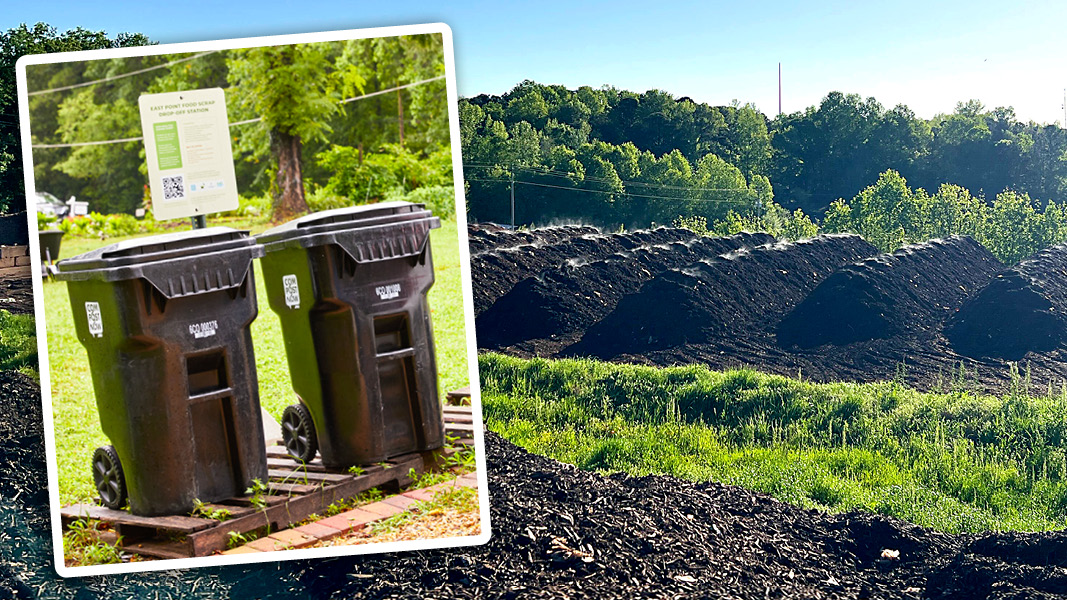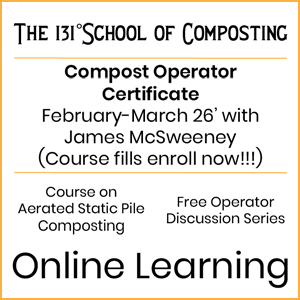Top: A CompostNow drop-off station (inset) in East Point and windrows at CompostNow’s food scrap composting facility outside of Atlanta. Photos by Kate Emrich, CompostNow

Alexandria Anderson Sellers
Alexandria Anderson Sellers recently completed a college internship with CompostNow, a microhauler and community composting business in Atlanta, Georgia. Anderson Sellers learned about CompostNow six years ago when her father enrolled the family in the company’s curbside food scraps collection service. “That is when I became aware of the power that the food we throw away holds,” she wrote in a blog on the Compost Now website. “Even though I understood the value of composting and how effortless CompostNow was making it for me, as a customer of the service I seldom thought about the people on the other side. The people sorting through my food scraps to ensure they weren’t contaminated with non-compostables, cleaning and checking my bin for any defects or cracks and the drivers using complex route systems to ensure that my bin gets picked up on time. When I became an intern my eyes were opened to the level of work ethic, care and attentiveness that the team members have.”
Part of the internship was assisting with food scraps collection. The route included four drop-off stations that are part of the East Point Community Compost Pilot Program. East Point (pop. ~32,000) is southwest of Atlanta and is a USDA-designated Low-Income Low-Access (LILA) census tract. Wrote Anderson Sellers: “Launched in 2023, the two-year pilot program is funded by a USDA grant through its Composting and Food Waste Reduction Cooperative Agreements. CompostNow has worked in partnership with the City of East Point, Food Well Alliance and East Point Grown, to establish a drop-off program for East Point residents. The service is completely free for residents of East Point who sign up to participate. Food scraps are collected by CompostNow twice weekly and processed at its facility or one of its partners. Through the program, finished compost is being returned to local BIPOC (Black and Indigenous people of color) growers that serve East Point through Food Well Alliance’s partnership. These growers depend on compost as a premium and expensive soil amendment for their operations and this program allows them to get the compost at no cost.”
To date, the East Point Community Compost Program has diverted 17,847 pounds from the landfill. To be successful long-term, more residents must utilize the drop-off sites, capturing food scraps to make compost that comes back to the East Point growers. “As I spoke with East Point residents, stakeholders and business owners about the program, I took in feedback and discussed possible solutions to increase user engagement,” noted Anderson Sellers. “The East Point Community Compost Program and others like it are essential to growing fresh produce that is accessible to inner-city residents who otherwise may not be able to obtain it. For these programs to have longevity, they must have the widespread support of both citizens and the government.”














